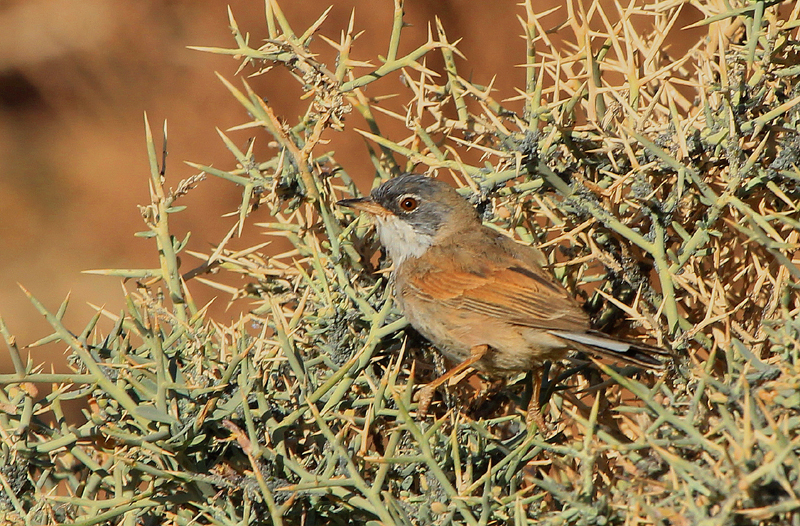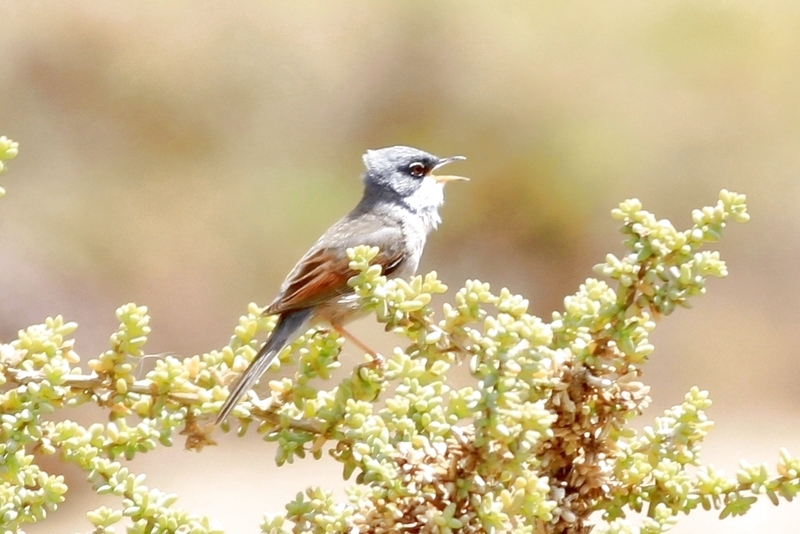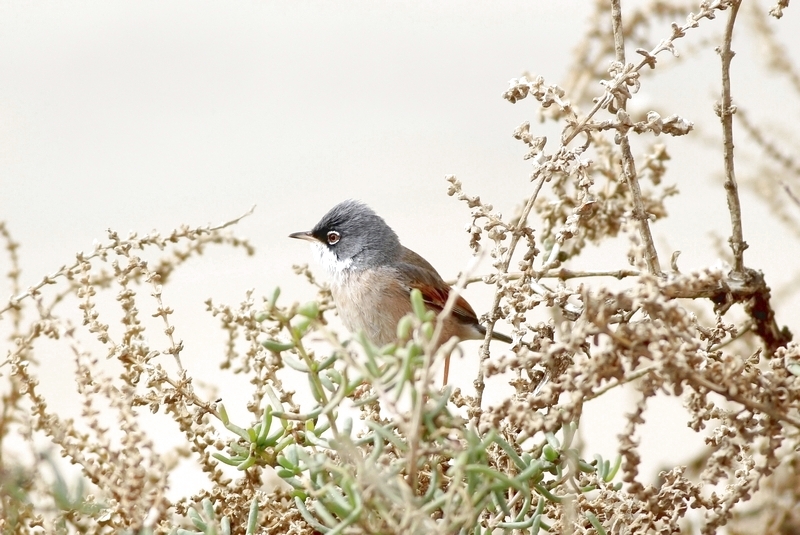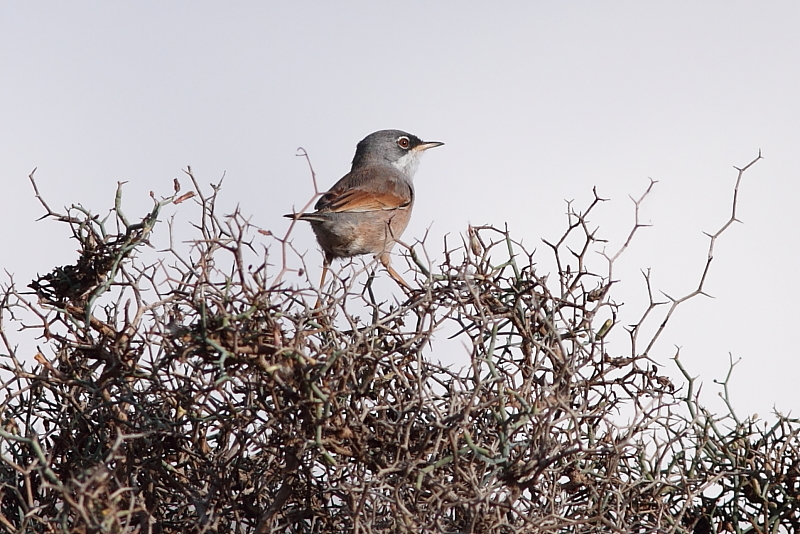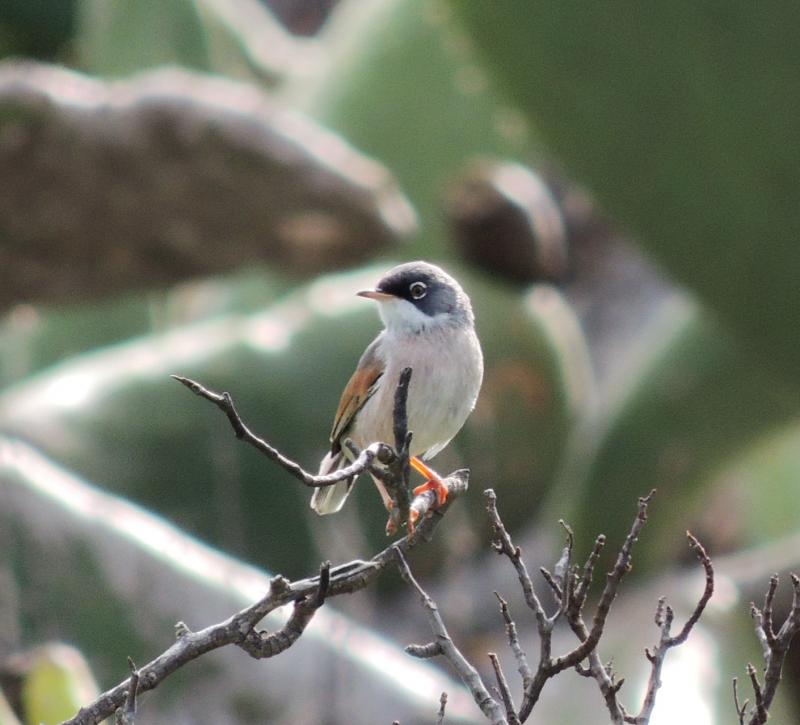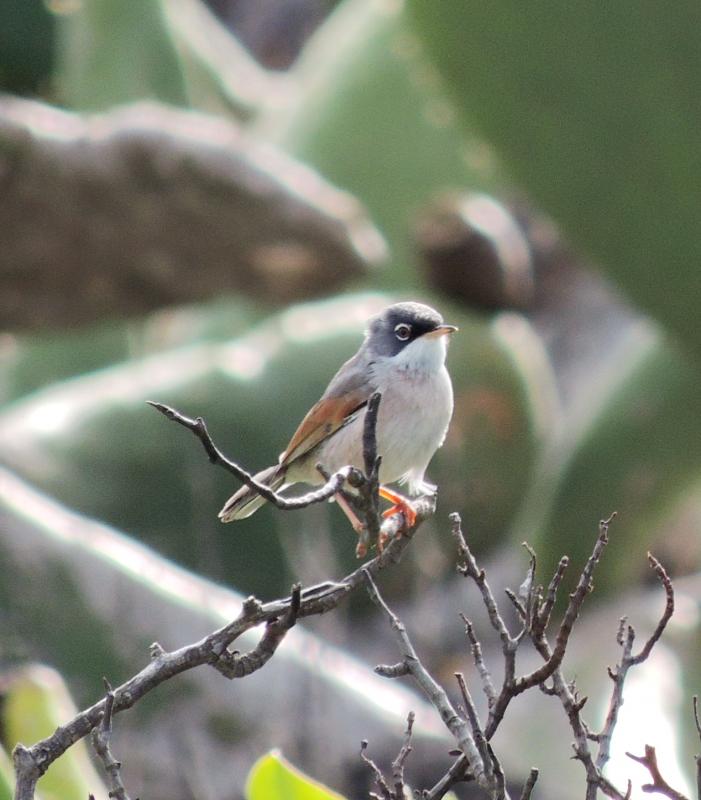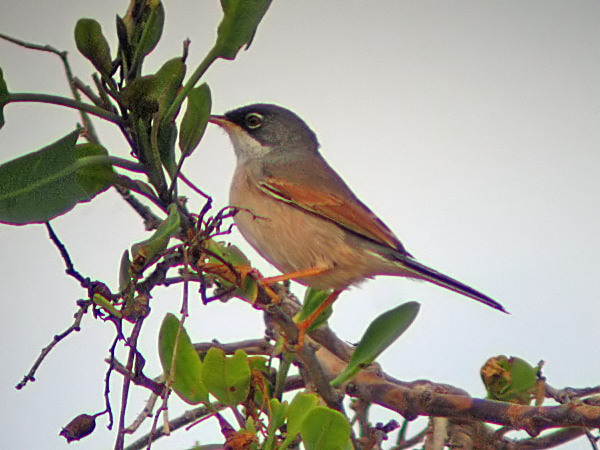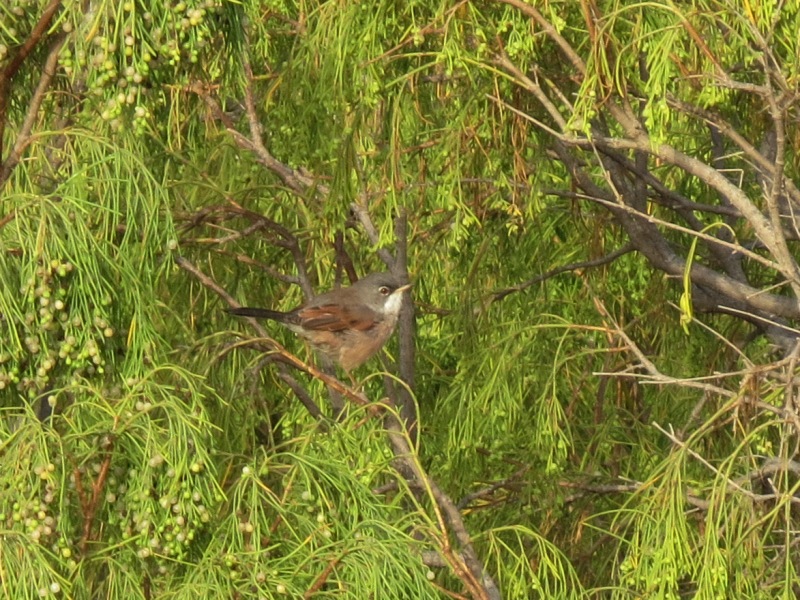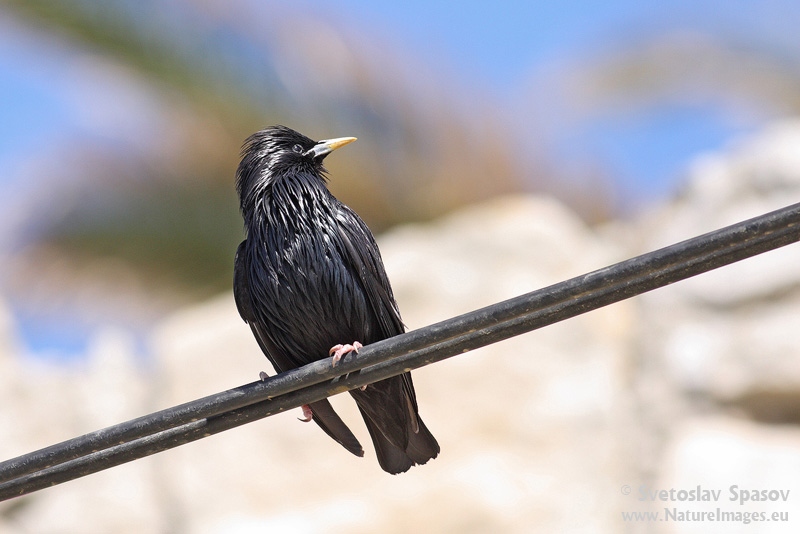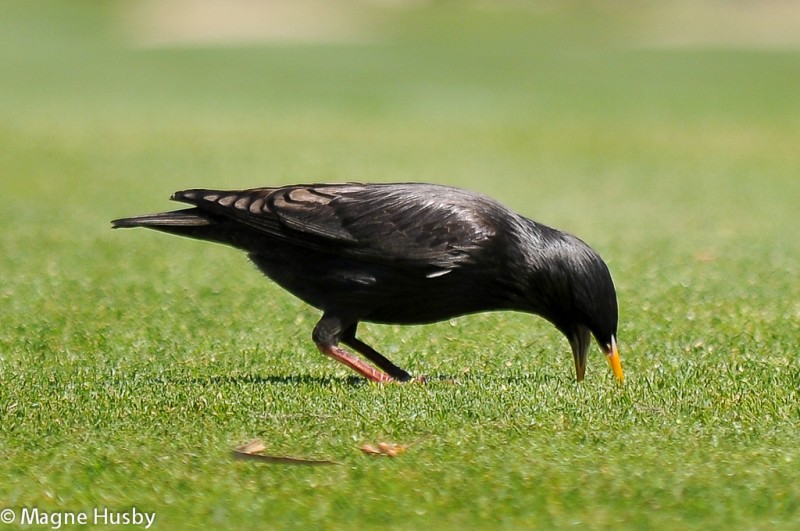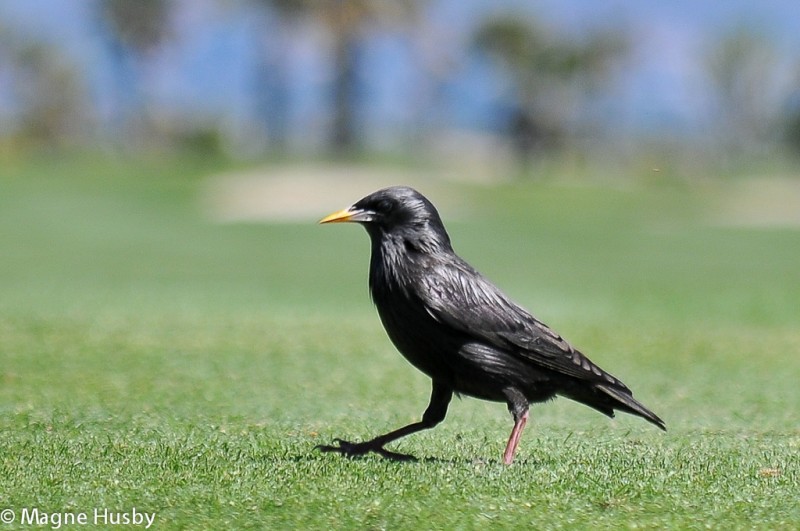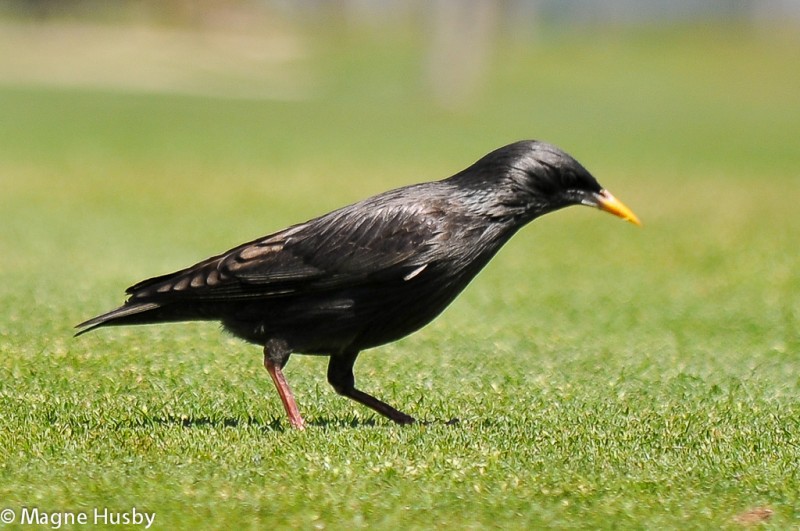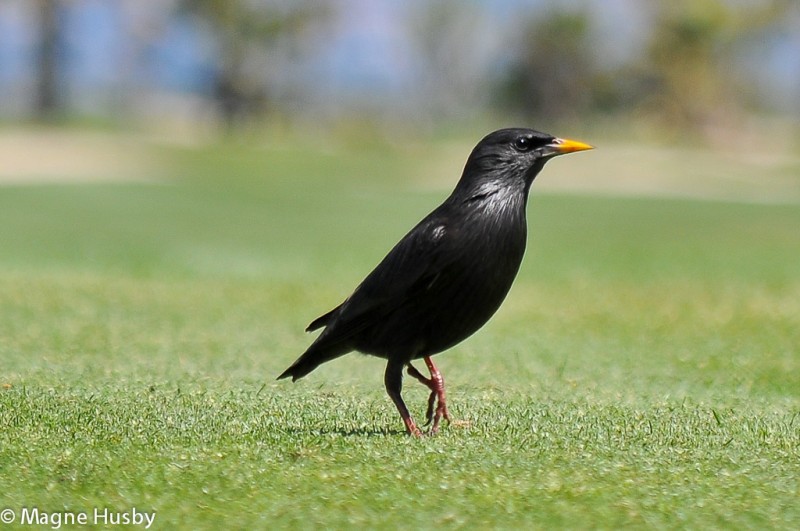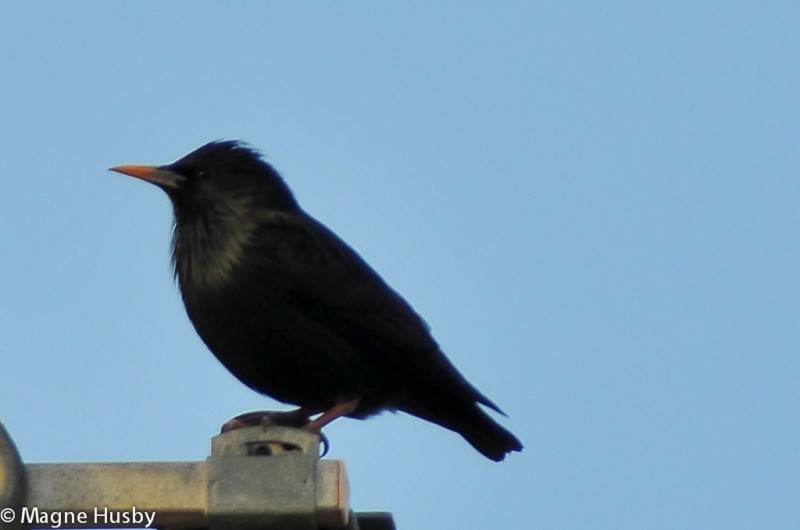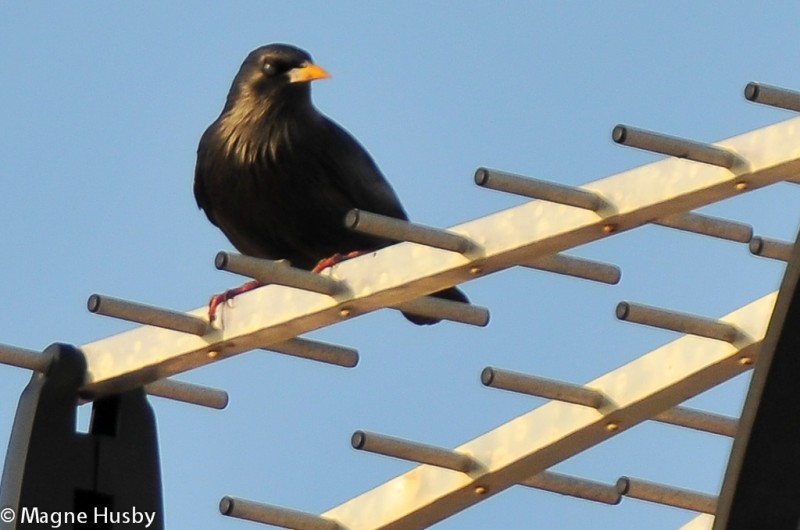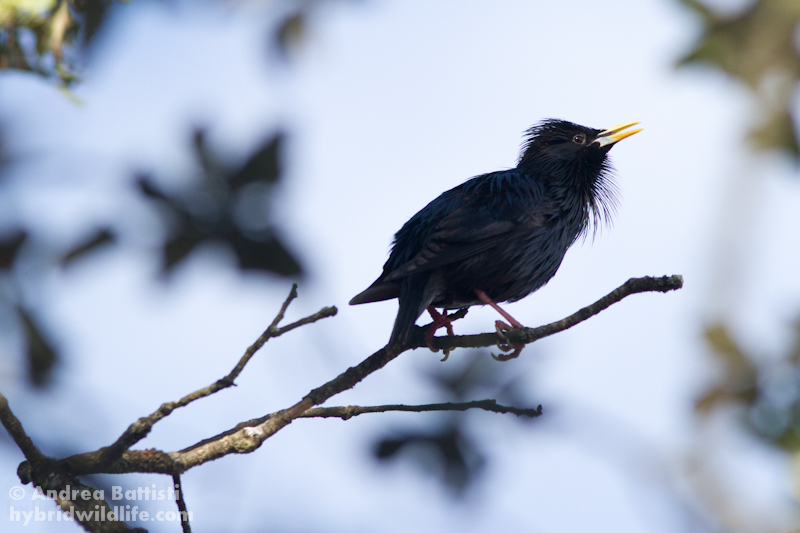Spectacled Warbler (Curruca conspicillata)
Spotless Starling (Sturnus unicolor)
Small and short-winged Sylvia with large head and high crown. In all plumages; evenly warm rufous wing-panel (lacking dark centered greater coverts of Whitethroat), very short primary projection, dark tail, thin pointed bill, narrow dark centres to tertials, pure white chin and (incomplete) white eye-ring. Adult male with lead-grey head, dark/black lore and often grey lower throat. Female and immature differs from Whitethroat by short primary projection, smaller size, slender build and thinner bill. Told from immature Subalpine Warbler by warmer rufous wings with only narrow dark centres to tertials.
Sound:Alarm call a dry, mechanical rattle; "trrrrrrrrrrrt", often rather long, but also given in pulses "trrrrrt-trrrt-trrrrrrrrr". More confluent and softer than similar call of Sardinian Warbler. Song rather weak and squeaky, but may be confused with several congeners. It typically starts with a few fluting notes then quickly giving way to fast alternating between clear tones and rattling pulses of "trrrrt". Phrases are short with marked pauses in between, and the structure is quite fixed even though each phrase is slightly different (in contrast to Sardinian and Subalpine Warbler). Sometimes bursts out in longer, more continuos flight-song.
Song:
Distribution:
Xeno-canto: map
Ecology:Birdlife ecology
Links:
Observation.org Latest observations
Image search Flickr NB! May give other species
CCSimilar to Starling, and may be difficult to tell apart in winter and immature plumages. Most birds are in breeding plumage from March on, completely lacking spots, and with a purple (not green) sheen. Flight feathers lacks pale fringes, and the overall look is much darker than Starling. Elongated head and throat feathers are slightly longer than in Starling. Winter and immature plumage birds difficult to identify, but has small and spearhead-shaped spots, and darker wings (due to lack of pale fringes). Leg colour generally paler pink, than Starling, but some overlap occurs.
Sound:Similar to Starling in form and variation, but the long, descending whistling notes are more dominant and accented. Sometimes uttered as trills, or "stuttered". Whistles also used as contact calls when not breeding.
Song:
Distribution:
Xeno-canto: map
Ecology:Birdlife ecology
Links:
Observation.org Latest observations
Image search Flickr NB! May give other species
CC
 English
English Albanian
Albanian
 Armenian
Armenian
 Bulgarian
Bulgarian
 Catalan
Catalan
 Croatian
Croatian
 Czech
Czech
 Danish
Danish
 Dutch
Dutch
 Finnish
Finnish
 French
French
 Georgian
Georgian
 German
German
 Greek
Greek
 Hungarian
Hungarian
 Italian
Italian
 Latvian
Latvian
 Lithuanian
Lithuanian
 Macedonian
Macedonian
 Norwegian
Norwegian
 Polish
Polish
 Portuguese
Portuguese
 Romanian
Romanian
 Russian
Russian
 Sami : Lule sami
Sami : Lule sami
 Sami : North sami
Sami : North sami
 Sami : South sami
Sami : South sami
 Scientific names
Scientific names
 Serbian
Serbian
 Spanish
Spanish
 Swedish
Swedish
 Ukrainian
Ukrainian


